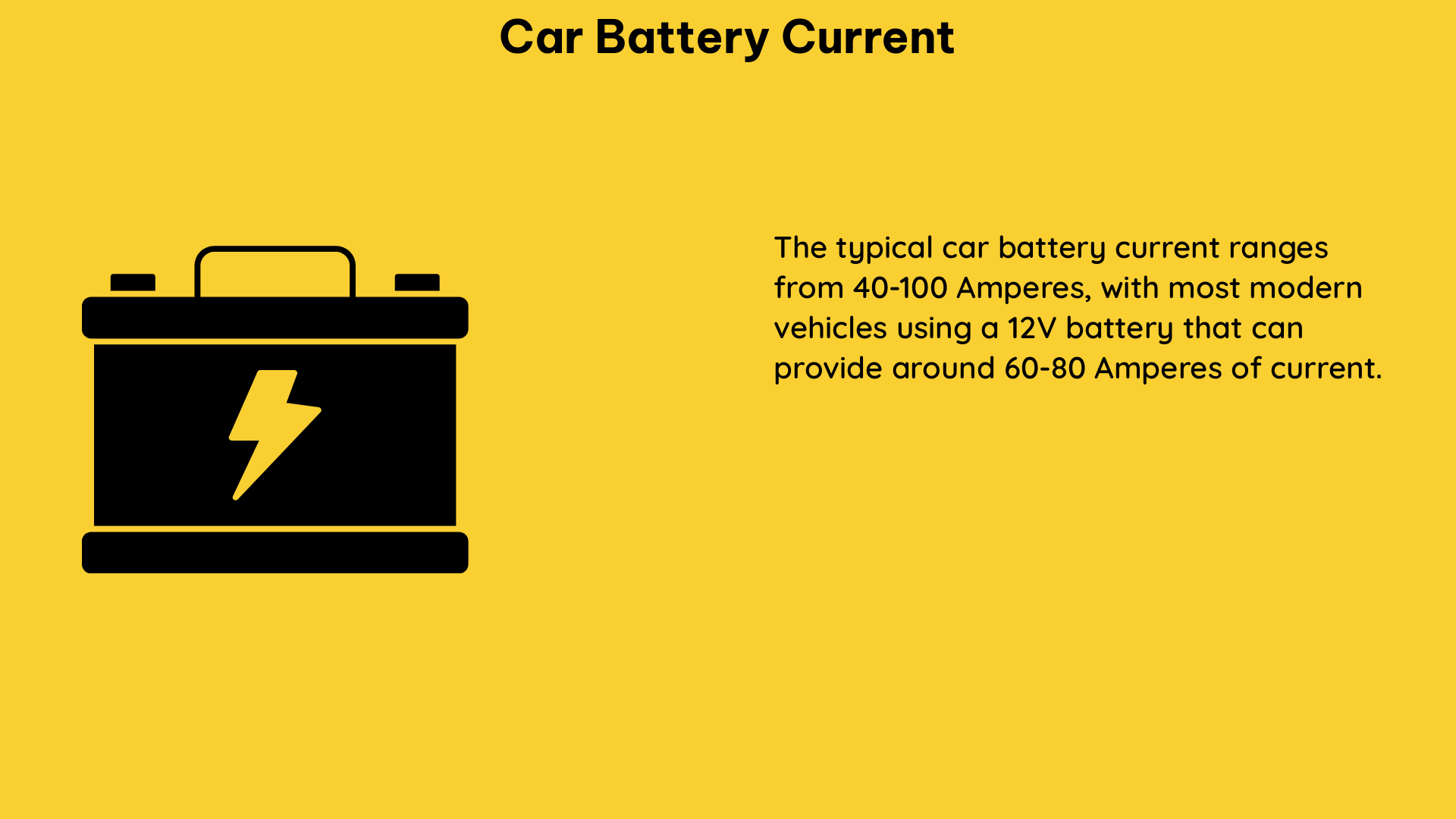Car battery current, also known as battery power or rate capability, refers to the rate at which an electrical current can be moved through a battery, measured in watts or C-rate. The higher the power, the faster a battery can deliver its stored energy or store incoming energy. C-rates are commonly used to describe battery power, with a higher C-rate indicating a faster charge or discharge rate.
Understanding Watt-Hours and Battery Capacity
One of the most important metrics when it comes to car battery current is watt-hours. Watt-hours measure how much energy (watts) a battery will deliver in an hour and is the standard of measurement for a battery. Watt-hours provide insight into the capacity of the battery or its materials, with battery capacity typically measured in kilowatt hours (kWh) or gigawatt-hours (GWh) for larger batteries.
For example, a typical car battery may have a capacity of 60 kWh, meaning it can deliver 60 kilowatts of power for one hour. This capacity is crucial for determining the range and performance of an electric vehicle (EV).
Energy Density and Specific Energy

Another important metric is energy density, which measures the amount of energy a battery contains relative to its size and is typically measured in watt-hours per liter (Wh/L). Specific energy, on the other hand, measures the amount of energy a battery contains relative to its weight and is typically measured in watt-hours per kilogram (Wh/kg).
| Metric | Typical Values |
|---|---|
| Energy Density | 200-300 Wh/L for lithium-ion batteries |
| Specific Energy | 150-250 Wh/kg for lithium-ion batteries |
Both energy density and specific energy are important for determining the size and weight of a battery for a given application, such as in an electric vehicle.
Impedance and Battery Health
Impedance is another key metric to consider when it comes to car battery current. Impedance is the amount of resistance within a cell when stimulated by an electrical current, with elevated levels of impedance indicating a weakness within the battery that can lead to stored energy being converted to heat rather than a useful current when the battery is used.
Typical impedance values for a healthy car battery can range from 5 to 20 milliohms (mΩ), depending on the battery size and chemistry. Impedance testing is an important part of evaluating the condition of a battery and helping to weed out early signs of failure or cell deterioration.
Measuring Car Battery Current
When it comes to measuring car battery current, there are several methods that can be used. One option is to use a diagnostic tool to measure the current flowing through the battery, while another option is to remove the battery for chemical testing. However, these methods can be invasive and may not provide accurate measurements in real-time.
To address this, some companies have developed less invasive solutions that use telematic data to build machine learning models that predict battery health and range. For example, Recurrent uses telematic data to build models that predict battery health today, as well as a prediction of what the range will be in three years. This approach allows for real-time monitoring of battery health and can help EV owners, shoppers, and dealers make informed decisions about battery health and range.
Conclusion
In summary, car battery current is a critical aspect of battery performance, with several key metrics to consider when it comes to technical specifications. Watt-hours, energy density, specific energy, and impedance are all important metrics to consider when evaluating battery performance. Additionally, less invasive methods for measuring battery current, such as using telematic data to build machine learning models, can provide accurate and real-time measurements of battery health and range.
References:
– 8 battery metrics that really matter to performance | Sila
– Understanding the Automotive Battery Life Cycle – Porsche Newsroom
– EV Battery Health after 250 Million Electric Car Miles – Recurrent

The lambdageeks.com Core SME Team is a group of experienced subject matter experts from diverse scientific and technical fields including Physics, Chemistry, Technology,Electronics & Electrical Engineering, Automotive, Mechanical Engineering. Our team collaborates to create high-quality, well-researched articles on a wide range of science and technology topics for the lambdageeks.com website.
All Our Senior SME are having more than 7 Years of experience in the respective fields . They are either Working Industry Professionals or assocaited With different Universities. Refer Our Authors Page to get to know About our Core SMEs.